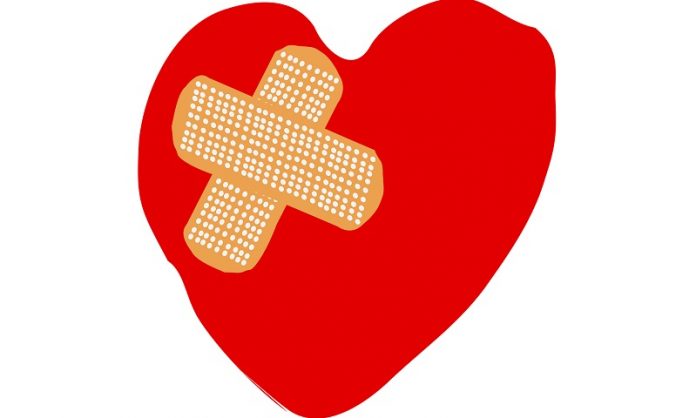
Scientists from Karolinska Institutet found that heart failure patients experiencing grief or in mourning following the loss of a close family member are at an increased risk of death, particularly during the first week following the family member’s death.
The research is published in JACC: Heart Failure and was conducted by Hua Chen et al.
Heart failure affects more than 64 million individuals worldwide.
Previous study findings suggest that depression, anxiety, and low social support are associated with poor prognosis in heart failure patients.
Many studies have also been conducted to confirm the link between severe emotional stress and Takotsubo cardiomyopathy, also known as “broken heart syndrome.”
In the study, the team looked at almost 500,000 patients from the Swedish Heart Failure Registry during 2000–2018, and/or patients with a primary diagnosis of heart failure.
A total of 58,949 study participants experienced the loss of at least one family member during the mean 4 years of follow-up.
The team found that bereavement was linked to increased heart failure death risk after the death of a child (a 10% increased risk), spouse/partner (a 20% increased risk), grandchild (a 5% increased risk), or sibling (a 13% increased risk), but not after the death of a parent.
The risk of dying from heart failure after the loss of any family member was highest during the first week of bereavement (a 78% increased risk), particularly in the case of death of a child (a 31% increased risk) or spouse/partner (a 113% increased risk).
it was also higher in the case of two losses (a 35% increased risk) as opposed to one loss (a 28% increased risk).
The team says the association between bereavement and mortality was not only observed in cases of loss due to heart disease and other natural causes, but also in cases of unnatural deaths.
Bereavement may activate the hypothalamic-pituitary-adrenal (HPA) axis, an important neuroendocrine system that regulates stress and emotional response.
It may also trigger a reaction in the renin-angiotensin-aldosterone system (RAAS) and the sympathetic nervous system, both of which are the main features of the neuroendocrine response in heart failure.
If you care about heart disease, please read studies about food that could strongly increase heart disease risk, and common high blood pressure drugs may increase the risk of this heart disease.
For more information about heart health, please see recent studies about a new early warning sign for heart disease, and results showing oranges and tangerines may help prevent diabetes, and heart disease.
Copyright © 2022 Knowridge Science Report. All rights reserved.



